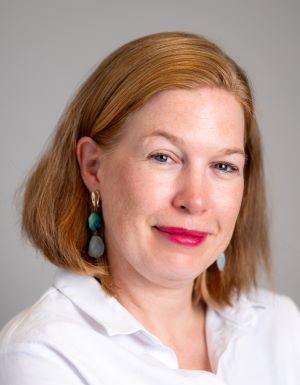Degrowth in organizations

Businesses can no longer avoid the need to make their operations more sustainable due to climate change, stricter regulations and, last-but-not-least; the consumer’s expectations. That will require most businesses to make a fundamental change in their business strategy. Against that background, how can you build a healthy future for your company, and what should you focus on when economic growth is no longer the main objective?
Lotte Levelt MSc. has been appointed PhD researcher to investigate degrowth in organizations, thanks in part to a generous gift from a Nyenrode alumnus. Together with Dr. Nicolas Chevrollier, Prof. André Nijhof and Dr. Aikaterini Argyrou, she will search for answers.
Why this research matters
"I am deeply convinced that while economic growth has served its purpose, it is not anymore suited to solve the main challenges of our time. Therefore, we ought to imagine something else. Researching ‘degrowth’ is a step in that direction."
Dr. Nicolas Chevrollier
Associated Professor and initiator of this research project
Five questions for Nicholas Chevrollier
1. Limiting growth? Is that really something we want?
“That is a very good question. The desire to grow is deeply rooted in our economic system. But today we can see that we’ve reached the limits of growth. The earth can’t handle it anymore. Climate change, biodiversity loss, overpopulation and extreme poverty, and resource depletion: the environment in which businesses operate is changing existentially all over the world.
"We have a duty to investigate alternative ways for businesses to develop sustainably."
As a business university, we have a duty to investigate alternative ways for businesses to develop sustainably. The rules of the game are changing, so we need a new strategy to play it. One concept that our research pays particular attention to is degrowth.”
2. Degrowth?
“Degrowth can be defined as the transition to an economy and society that are in balance with nature, and that focus on prosperity for everyone. It is a term that is definitely subject to debate, because some people immediately view this as a ‘recession’. But that is emphatically not the idea behind degrowth. It is a planned reduction of consumption and production.
At the organizational level, value creation is still the main goal. But the value created is a different value than just profits. Look at it as ‘going on a diet’. You’re looking for a new balance that you know will be good for you in the long term. So you eat less, which can be exceptionally challenging and simply not fun, but if you do it right it will lead to a better result.
"Companies like Patagonia and Dopper are already thinking about certain steps, like reconsidering their sales strategy."
We’ve seen that some companies, like Patagonia and Dopper, are already thinking about certain steps in that process, like reconsidering their sales strategy. They’re willing to trade profits to make their operations more sustainable. Those are steps in the right direction. How steps like these can contribute to degrowth, and which characteristics define the degrowth model, are questions that we aim to answer with our research.”
3. Are there already companies that fully apply the degrowth model?
“Our research still needs to determine what a full degrowth model entails. But companies in a wide range of sectors – many of them small businesses – are already putting elements of degrowth into practice. Other academic research into the degrowth model has already been conducted, especially in France and Spain and parts of the UK. That comes in handy for us, because we can use the data in our research.
The Netherlands hasn’t been a pioneer in this area in the past, but we have seen that the country is starting to catch up and the initiatives are becoming more structured, for example with the ‘degrowth platform’. The European Parliament recently held an interesting conference on the beyond-growth economy, and degrowth is an important element in that.”
4. So the research will help companies find ‘the right diet’?
“That’s one way to look at it. From a business perspective, we only have a fragmentary image of what is needed for a successful implementation of a degrowth strategy. So we hope that our research will flesh out that image. We aim to discover patterns, success factors.
"If profit is no longer the goal, which value should you focus on as a company? And how can you then determine whether you’ve been successful?"
One important aspect of degrowth is determining value. If profit is no longer the goal, which value should you focus on as a company? And how can you then determine whether you’ve been successful? Secondly, it is important for the organization to have sufficient dynamic capabilities to make such a radical transition a success. A third line of research will focus more on the legal and governance structures that businesses need in this rapidly changing context. In the Netherlands, we have private companies and foundations, but that begs the question: which legal entity should you adopt if you’re not a foundation, but profit isn’t your main objective?”
5. Why is Nyenrode a good place for this research?
“In its capacity as a business school, you could consider Nyenrode to be the ‘temple of economic growth’: for decades, we’ve taught students to strive for economic growth in their operations. But now that we know focusing solely on profits is no longer feasible, it is precisely here in Breukelen that we will have to look for alternative scenarios like degrowth. After all, we have a long tradition and a wealth of expertise in the field of sustainable entrepreneurship and sustainable transitions.
In the Netherlands, research into degrowth is still in its infancy, especially in business. The fact that Nyenrode is willing to stick its neck out is a sign of courage, and makes it a truly interesting field of research. The relevance for businesses and for our students, the managers of the future, is both significant and urgent.”
About the researchers
Prof. Dr. André Nijhof is Professor of Sustainable Entrepreneurship and Stewardship at Nyenrode Business University. He is affiliated with the Nyenrode Faculty Expertise Centre Entrepreneurship, Governance & Stewardship.
He earned his PhD at the University of Twente in 1999, has acted as the former President of the Netherlands Business Ethics Network and served as project manager in the national Corporate Social Responsibility (CSR) research program in the Netherlands. He has published many articles in international periodicals like the Journal of Business Ethics, Corporate Governance and Leadership and Organizational Development Journal.
Dr. Nicolas Chevrollier is an Associate Professor at Nyenrode Business University. He is affiliated with the Nyenrode Faculty Expertise Centre Entrepreneurship, Governance & Stewardship.
Chevrollier teaches courses at the BSc, MSc and MBA levels. He also studies how new forms of strategy, business models and organizations lead to higher levels of sustainability performance. Connecting people, planet and business mechanisms is what gives him energy in interactions with students and colleagues.
Dr. Aikaterini Argyrou LL.M is an Associate Professor at Nyenrode Business University. She is affiliated with the Nyenrode Faculty Expertise Centre Entrepreneurship, Governance & Stewardship.
Argyrou conducts multi-disciplinary research in the fields of law, sustainability and social entrepreneurship. Her research focuses on studying normative frameworks that apply and facilitate the concept of sustainability in entrepreneurship and business law, from the perspective of social entrepreneurship. Her interest in research also extends to fields related to sustainability and institutional change, sustainable market transformation, corporate and human rights, CSR and gender issues in organizations. Since 2020, Argyrou has served as a member of the scientific board of the OECD, where she promotes social and solidarity ecosystems in the economy.
Lotte Levelt MSc. Is a fulltime PhD candidate at the Center for Entrepreneurship, Governance and Stewardship. Her research focuses on sustainability and international development, with a particular focus on Degrowth: What do degrowth business models look like? How will we define value in a post-growth society? She gets inspired by idealist colleagues and students who think outside the box!
Support our research for a sustainable world
Would you like to join us in contributing to a sustainable world? Donate to Stichting Nyenrode Fonds (Nyenrode Fund), so that we may continue to finance studies like these.
We are a private university, and do not receive funding from the government. We depend entirely on private donations from our community. With your support, we can appoint a young academic professional to conduct this research.
By supporting us, you can help Nyenrode and offer young talent the chance to take the next step in their academic career.


